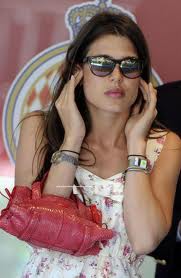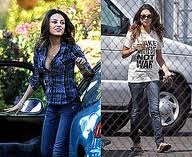Recently HELLO! published its top ten style icons of the last year. The women that were chosen are not afraid to bend the boundaries of the fashion world and are confident and comfortable in their own styles. Each one has a different and unique style, which are interesting and trend setting in their own rights.
Once again Kate Middleton makes it as a style icon for 2011. She was voted the top style icon of this year. Over the years Middleton’s style has changed and evolved into what it is today. The of fashion waits with baited breath to see what she will wear next; some of Middleton’s favourite designers include Alexander McQueen, Catherine Walker and Issa.
Charlotte Casiraghi of Monaco was voted as the second style icon of 2011. This young woman is part of the Monaco royal family and granddaughter to Princess Grace. Casiraghi’s style is influenced by her grandmother, Grace Kelly, with her timeless and classic sense of style. Casiraghi has launched her own, eco-friendly magazine, called Ever Manifesto, and can be seen gracing the front row seats at some of the top fashion shows.
Harry Potter starlet Emma Watson made it onto the list as the third style icon of 2011. For ten years she graced the silver screen as Hermione Granger. Her style has developed along with her career. She has been the face of Burberry, and has recently signed on to be the face of Lancôme. Watson is the youngest person to ever appear on the cover of Teen Vogue, at the age of 15. Her style has matured as she has grown, and this was evident when she cut off her long locks at the end of filming the last Harry Potter film, leaving behind a short, and trendy pixy do.
Princess Beatrice of England has been making headlines this year for her good and bad wardrobe choices, and that is why she was voted as HELLO! magazines fourth style icon of the year. Beatrice raised quite a few eyebrows at the wedding of her cousin Prince William to Kate Middleton in April with her Philip Treacy fascinator. Since the wedding she has hired a stylist and has had quite a transformation within her wardrobe.
Hollywood’s girl next door, Blake Lively, is the fifth style icon of 2011. Lively has described shopping as her hobby, and therefore would not hire a stylist when her publicist suggested she get one. Lively has an elegant style, but is also not afraid to try new things when it comes to her wardrobe. She also has a love for Christian Louboutins’ that lengthen her already tall figure.
Miranda Kerr model, and mother, to make it onto this year’s style icon list. Kerr’s philosophy is that if you look and feel good on the inside, you look and feel good on the outside too. She doesn’t follow trends but rather finds her own voice within fashion, and in so doing set trends.
The seventh HELLO! style icon of 2011 is Mila Kunis. Kunis is an award-winning actress, particularly for her role in Black Swan. Her natural make-up highlights her eyes and clear skin. It is Kunis’s wardrobe that lets the world know about her style and confidence. Her favourite brands include Elie Saab, Alexander McQueen and Louis Vuitton.
After her sister’s wedding in April of this year, Pippa Middleton was thrown into the limelight. Her new found fame and attraction is what has made her the eighth style icon of this year. Pippa’s influence on fashion is seen as she inspires fashion lines, such as Debenhams’ limited edition Pippa gown, and the Modalu handbag that she is so well-known as for using that the bag line has now been named after her.
Her ever changing style and not being afraid to break the rules is what made Cheryl Cole the ninth style icon of 2011. Cole has the reputation to impact what woman will or will not wear, in many ways similar to the impact that Kate Middleton is having on the fashion world. It is Cole’s confidence in her appearance and style that makes her a leader in the world of fashion.
Rosie Huntington-Whiteley, model and leading lady of Transformers 3: Dark of the Moon, is the tenth and last HELLO! style icon of 2011. Whiteley is a well experienced model, having modelled for well-known brands such as Victoria’s Secret, Agent Provocateur and Burberry. She looks elegant and classy where on the red carpet or just going shopping.













































